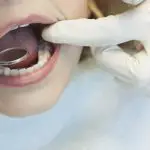Why Does Drinking Water Cause Tooth Pain? Explained by Dental Experts

Drinking water is a fundamental need of every living being, and we all know that it is essential for our overall health. However, for some people, drinking water can cause tooth pain, which can be quite uncomfortable and even unbearable at times. This phenomenon is not uncommon, and many people experience it on a regular basis. Dental experts have been studying the causes of tooth pain caused by drinking water, and their findings shed light on this issue. Tooth pain caused by drinking water can be a result of various factors, such as tooth decay, sensitivity, and gum disease. It can be a sharp pain that lasts only a few seconds or a dull ache that persists for hours. Whatever the type of pain, it can be a sign of a more significant underlying dental issue that requires immediate attention. Dental experts have been researching the causes of this type of pain and ways to prevent and treat it. In this article, we will explore the reasons behind tooth pain caused by drinking water and what you can do to alleviate it.
Tooth pain experienced when drinking water is a common issue that many people face. This sharp, sudden pain can occur due to various reasons such as tooth decay, gum disease, cavities, or even sensitivity to cold temperatures. When water enters the mouth, it can seep through tiny openings in the tooth’s enamel and irritate the nerve endings, leading to discomfort. Additionally, if there are any cracks or breaks in the tooth, drinking water can exacerbate the problem. While this pain may be temporary, it is essential to consult a dental expert to determine the underlying cause and prevent further damage to the teeth.
Understanding the cause of tooth pain is crucial for preventing further damage to the teeth. Tooth pain is often a sign of an underlying dental problem, such as a cavity, gum disease, or a cracked tooth. If left untreated, these issues can lead to more severe dental problems, such as tooth loss. In the case of water causing tooth pain, it could be a sign of tooth sensitivity or enamel erosion, which can be caused by a variety of factors, including acidic foods, brushing too hard, or grinding your teeth. By identifying the cause of tooth pain, dental experts can provide appropriate treatment and advice on how to prevent further damage to the teeth. Regular dental check-ups can help catch dental issues early, ensuring that they are treated before they become more severe.
Tooth Sensitivity
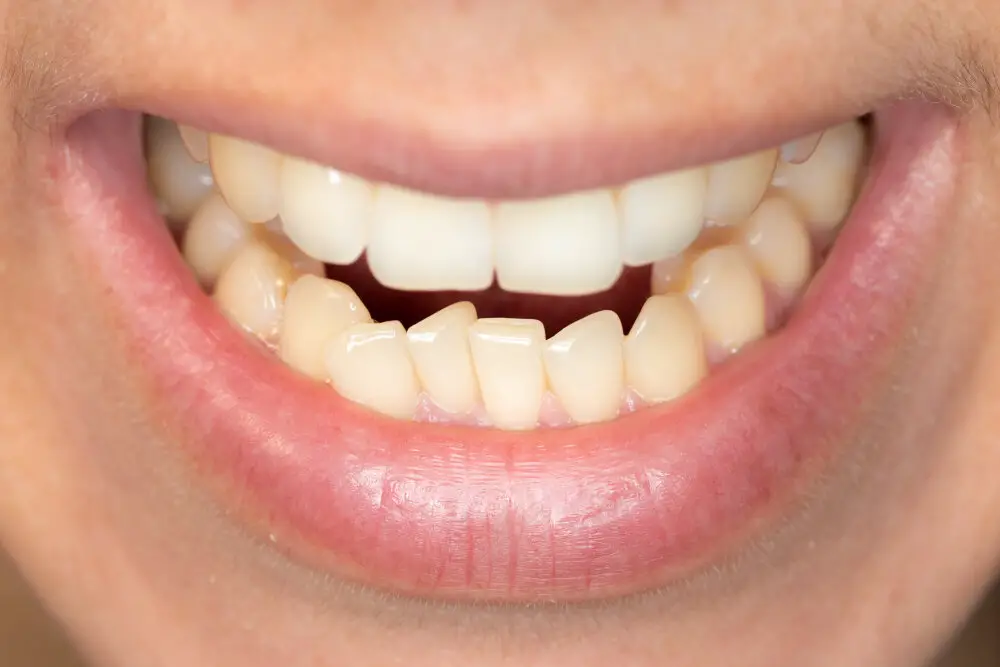
Tooth sensitivity is a common dental issue that affects many people, causing discomfort or pain when consuming cold, hot, sweet, or acidic foods and drinks. This condition occurs when the enamel, which is the protective outer layer of the tooth, becomes worn down or damaged, exposing the underlying dentin, which is a softer and porous layer that contains tiny nerve endings. As a result, stimuli such as temperature changes or pressure can reach the nerves and cause pain or sensitivity. Tooth sensitivity can also be caused by gum recession, which exposes the tooth root and makes it vulnerable to stimuli. Moreover, tooth decay, cracked teeth, or dental procedures such as teeth whitening or fillings can contribute to tooth sensitivity. To prevent tooth sensitivity, it is important to maintain good oral hygiene, avoid acidic and sugary foods and drinks, use a soft-bristled toothbrush, and visit the dentist regularly. Drinking water can also cause tooth sensitivity, especially if the water is too cold or hot. This is because extreme temperatures can trigger the nerves in the teeth and cause pain or discomfort. Moreover, some water sources contain high levels of minerals such as calcium and magnesium, which can build up on the teeth and cause plaque and tartar formation, leading to tooth decay and sensitivity. To reduce the risk of tooth sensitivity caused by drinking water, it is recommended to drink water at room temperature or use a straw to bypass the teeth. Additionally, using fluoride-containing toothpaste and mouthwash can strengthen the enamel and reduce sensitivity. If tooth sensitivity persists or worsens, it is advisable to consult a dentist for proper diagnosis and treatment.
Tooth sensitivity is a common dental issue that affects many people worldwide. It is a condition where the teeth become extremely sensitive to hot or cold food and drinks, sweet or sour foods, and even cold air. The condition is caused by the exposure of the tooth’s dentin, which is the layer beneath the enamel that contains tiny tubules leading to the nerves of the teeth. When the dentin is exposed, it can be stimulated by changes in temperature or acidity, leading to pain or discomfort. Tooth sensitivity can be caused by a variety of factors, including gum recession, enamel erosion, tooth decay, and teeth grinding. It is important to consult a dental expert if you experience tooth sensitivity to identify the underlying cause and determine the best treatment plan for you.
Tooth sensitivity is a common dental problem that can lead to pain when drinking water. This occurs when the enamel on the teeth wears down, exposing the underlying dentin and causing the nerves in the teeth to become more sensitive. When water comes in contact with these exposed nerves, it can cause a sharp, shooting pain that can be quite uncomfortable. Factors that can contribute to tooth sensitivity include brushing too hard, consuming acidic foods and drinks, grinding your teeth, and gum recession. It’s important to address tooth sensitivity promptly to prevent further damage and discomfort, and your dentist can recommend a variety of treatments, including desensitizing toothpaste, fluoride treatments, and dental bonding, to help alleviate the pain and protect your teeth.
To alleviate tooth sensitivity, there are several things that can be done. One option is to switch to a toothpaste that is specifically designed for sensitive teeth. These toothpastes contain ingredients that help to block the tubules in the teeth that cause sensitivity. Another option is to maintain good oral hygiene practices, such as brushing and flossing regularly. This can help to prevent gum recession and enamel erosion, which are both common causes of tooth sensitivity. Additionally, avoiding acidic foods and drinks, as well as using a soft-bristled toothbrush, can help to reduce sensitivity. In some cases, a dentist may recommend a fluoride treatment or dental bonding to help protect the teeth and reduce sensitivity.
Tooth Decay
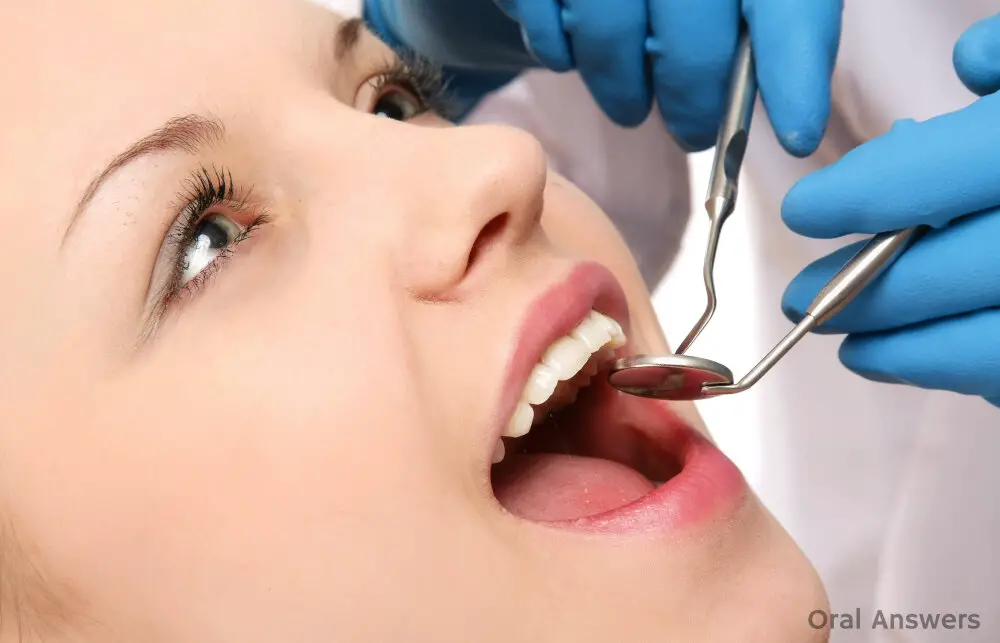
Tooth decay is a common dental problem that occurs due to the accumulation of plaque and bacteria on the teeth’s surface. It is a gradual process that starts with the formation of small cavities and can progress to severe damage if left untreated. Tooth decay is caused by the consumption of sugary and acidic foods and drinks, which provide a favorable environment for bacteria to thrive. Over time, the bacteria produce acid that erodes the tooth enamel, leading to cavities. Tooth decay can cause a range of symptoms, including sensitivity, pain, and visible holes in the teeth. In severe cases, tooth decay can lead to infections, abscesses, and even tooth loss. The best way to prevent tooth decay is to maintain good oral hygiene practices, such as regular brushing and flossing, avoiding sugary and acidic foods and drinks, and visiting the dentist for regular check-ups and cleanings. Dental experts also recommend using fluoride toothpaste and mouthwash to strengthen the enamel and prevent decay. By taking these preventive measures, individuals can maintain healthy teeth and avoid the pain and discomfort associated with tooth decay.
Tooth decay, also known as dental caries, is a common dental problem caused by a buildup of plaque on teeth. Plaque is a sticky film of bacteria that forms on teeth and gums and produces acid that breaks down the enamel, causing cavities. The main causes of tooth decay include poor oral hygiene, a diet high in sugar and carbohydrates, and a lack of fluoride in the water supply. Poor oral hygiene allows plaque to accumulate on teeth, while sugary and starchy foods provide a food source for bacteria, leading to acid production. Fluoride helps to strengthen tooth enamel and protect against decay but is not always present in drinking water. Other factors that can contribute to tooth decay include dry mouth, acid reflux, and certain medications. Regular dental check-ups and proper oral hygiene practices, such as brushing twice a day and flossing daily, can help prevent tooth decay.
Tooth decay occurs when the enamel on the surface of teeth is damaged, exposing the sensitive dentin layer beneath. When this happens, drinking water can cause pain because the temperature and pressure of the water can stimulate the nerves in the exposed dentin. This can lead to a sharp, shooting pain that can be uncomfortable and even debilitating. The pain can be particularly intense when drinking cold water, as the sudden change in temperature can cause the nerves to react more strongly. Furthermore, the pain may persist even after the water has been swallowed, making it difficult to enjoy everyday activities like drinking or eating. Overall, tooth decay can have a significant impact on a person’s quality of life, and it is important to seek treatment as soon as possible to prevent further damage and alleviate discomfort.
To prevent tooth decay, it’s essential to maintain good oral hygiene by brushing your teeth at least twice a day, flossing daily, and using mouthwash regularly. Additionally, it’s important to reduce sugary and acidic food and drinks, and opt for a healthy diet that includes fruits and vegetables. Regular dental check-ups and cleanings can also help prevent tooth decay by identifying and treating any early signs of decay or other dental issues. Drinking fluoridated water can also strengthen tooth enamel and reduce the risk of tooth decay. By following these preventive measures, you can maintain good oral health and avoid the discomfort and pain associated with tooth decay.
Gum Recession
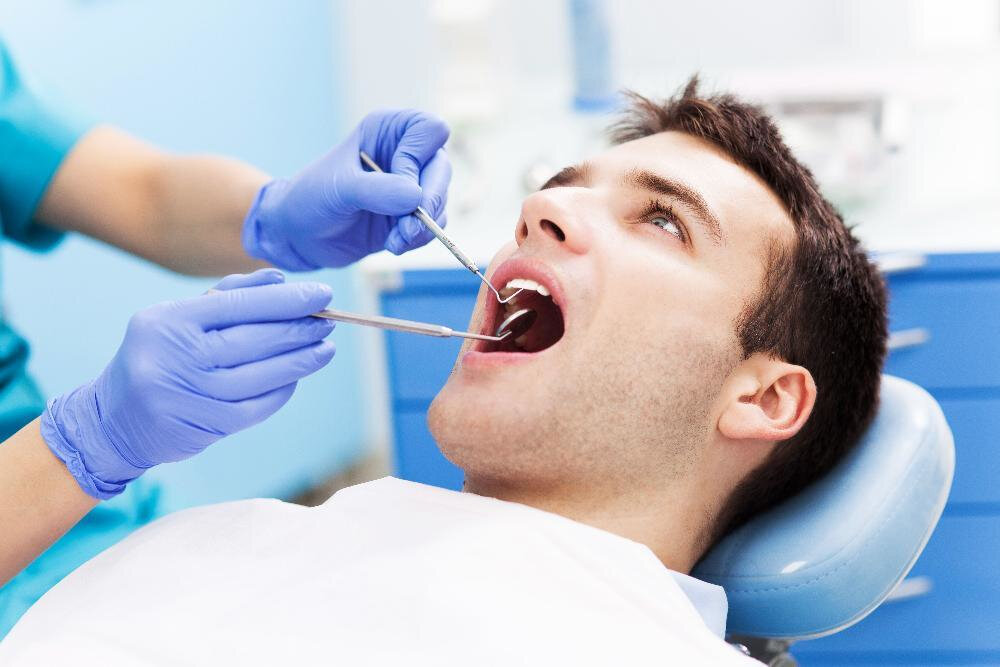
Gum recession is a common dental problem that occurs when the gum tissue around the teeth begins to pull back, exposing the tooth roots. This condition can cause tooth sensitivity, as well as make the teeth appear longer than usual. Gum recession can be caused by a variety of factors, including genetics, poor oral hygiene, gum disease, aggressive brushing, and hormonal changes. If left untreated, gum recession can lead to tooth loss and other serious dental problems. To prevent gum recession, it is important to maintain good oral hygiene habits, including brushing twice a day, flossing daily, and visiting the dentist regularly for cleanings and checkups. It is also important to avoid smoking, which can increase the risk of gum disease and other dental problems. If gum recession is already present, treatment options may include deep cleaning, gum graft surgery, or other surgical procedures, depending on the severity of the condition. With proper care and treatment, however, gum recession can be managed and prevented from progressing further.
Gum recession is a common dental problem that occurs when the gum tissue surrounding the teeth wears away or pulls back, exposing the tooth root. This can lead to sensitivity, pain, and even tooth loss if left untreated. There are several causes of gum recession, including aggressive brushing, periodontal disease, genetics, hormonal changes, and tobacco use. Additionally, certain lifestyle factors like poor dental hygiene, clenching or grinding teeth, and even drinking water that is too cold can contribute to gum recession. It is important to address gum recession early on to prevent further damage and potential tooth loss, and to work with a dental professional to develop an individualized treatment plan.
Gum recession occurs when the gum tissue around the teeth pulls back, exposing more of the tooth and its root. This can cause extreme sensitivity and pain when drinking water, especially if the water is cold. The exposed root surface has microscopic tubules that lead to the nerve endings of the tooth, and any change in temperature or pressure can stimulate these nerve endings, causing pain. Additionally, as the gum tissue recedes, it exposes the delicate root surface, making it more vulnerable to decay and infection. Therefore, it is essential to address gum recession promptly, as it can lead to serious dental problems and discomfort when drinking even the simplest things like water.
Gum recession is a common dental problem that can lead to sensitivity and tooth decay. To prevent gum recession, it is important to practice good oral hygiene, such as brushing and flossing regularly. Using a soft-bristled toothbrush and avoiding aggressive brushing can also help prevent gum recession. Additionally, avoiding tobacco products and maintaining a healthy diet can positively impact gum health. Regular dental check-ups and cleanings can also help detect and prevent gum recession. If gum recession is already present, treatment options such as gum grafting may be necessary to prevent further damage.
Cracked Teeth

Cracked teeth are a common dental problem that can cause a great deal of discomfort and pain. A cracked tooth can be caused by a variety of factors, such as biting down on something hard, grinding your teeth, or even a blow to the face. Cracked teeth can be difficult to detect, and the symptoms can vary from person to person. Some people may experience sharp pain when biting down, while others may feel sensitivity to hot or cold temperatures. In some cases, a cracked tooth may not cause any symptoms at all, but it can still be a serious dental problem that requires treatment. If you suspect that you have a cracked tooth, it is important to see a dentist as soon as possible. Ignoring a cracked tooth can lead to further damage, infection, and even tooth loss. Treatment for a cracked tooth will depend on the severity of the crack and the location of the tooth. In some cases, a simple filling or crown may be enough to repair the tooth and alleviate the pain. However, if the crack is severe or extends deep into the tooth, a root canal may be necessary to remove the damaged tissue and prevent infection. With prompt treatment, most cracked teeth can be saved and restored to their normal function and appearance.
Cracked teeth are a common dental problem that can cause severe pain and discomfort. They can occur due to various reasons such as biting hard objects, teeth grinding, and sudden trauma to the mouth. Age-related wear and tear and structural defects in the teeth can also lead to cracked teeth. When a tooth has a crack, it can expose the sensitive nerves and tissues inside, causing sensitivity to hot and cold temperatures, pain while chewing, and even infection. It’s essential to seek dental treatment for cracked teeth promptly to avoid further damage and prevent dental emergencies.
Cracked teeth can be a major source of pain, especially when drinking water. When you have a crack in your tooth, it can expose the sensitive nerves and tissues inside the tooth, making them vulnerable to external stimuli such as temperature changes. This means that when you drink cold water, it can cause a sharp pain in the affected tooth. This pain can also occur when you eat hot or sweet foods, as they can also trigger the exposed nerves and tissues. If left untreated, cracked teeth can lead to further complications such as tooth decay, infections, and abscesses, so it’s important to address the issue as soon as possible.
Preventing cracked teeth requires good oral hygiene, a healthy diet, and avoiding bad habits. Brushing and flossing regularly can help remove food particles and plaque, reducing your risk of tooth decay and gum disease which can weaken teeth. A diet rich in calcium and vitamin D can strengthen teeth and bones, and avoiding sugary and acidic foods can prevent erosion and decay. Bad habits such as grinding teeth or chewing on hard objects should also be avoided to prevent damage. Wearing a mouth guard during sports or physical activities can also protect teeth from impact or trauma. Regular dental check-ups can help identify any potential issues and prevent them from becoming more serious.
Tooth pain while drinking water is a common dental issue that can be caused by various factors. The most common cause of tooth sensitivity is the exposure of the tooth’s dentin, which is the layer beneath the enamel that contains nerve endings. Enamel erosion, gum recession, and tooth decay can all lead to dentin exposure, resulting in sensitivity to temperature changes. Additionally, consuming acidic drinks and foods can cause tooth enamel to dissolve, increasing tooth sensitivity. Grinding teeth, gum disease, and brushing teeth too hard can also lead to tooth sensitivity. It is essential to identify the cause of tooth pain and address it promptly to prevent further damage and discomfort.
Persistent tooth pain can be a sign of a serious dental problem that requires immediate attention. Ignoring the pain and delaying treatment can lead to further complications and even tooth loss. Seeking dental treatment for persistent tooth pain is crucial to identify the underlying cause of the pain and to prevent the progression of the problem. Dental professionals have the expertise and tools to diagnose and treat a variety of dental issues, from tooth decay to gum disease. Additionally, regular dental check-ups can help catch any potential problems early on, before they become more severe. Don’t suffer through tooth pain – seek dental treatment to maintain optimal oral health and prevent future dental problems.
In addition to avoiding sugary and acidic drinks, maintaining good oral hygiene practices is crucial for maintaining oral health. This includes brushing twice a day, flossing daily, and using mouthwash to kill bacteria and freshen breath. It is also important to schedule regular dental check-ups and cleanings to catch any potential issues early on. For those who experience tooth sensitivity or pain, using toothpaste specifically designed for sensitive teeth can help alleviate discomfort. Additionally, incorporating foods high in calcium and vitamin D, such as dairy products and leafy greens, can help strengthen teeth and promote overall oral health. By taking these steps, individuals can help prevent painful tooth problems and maintain a healthy smile.
Conclusion
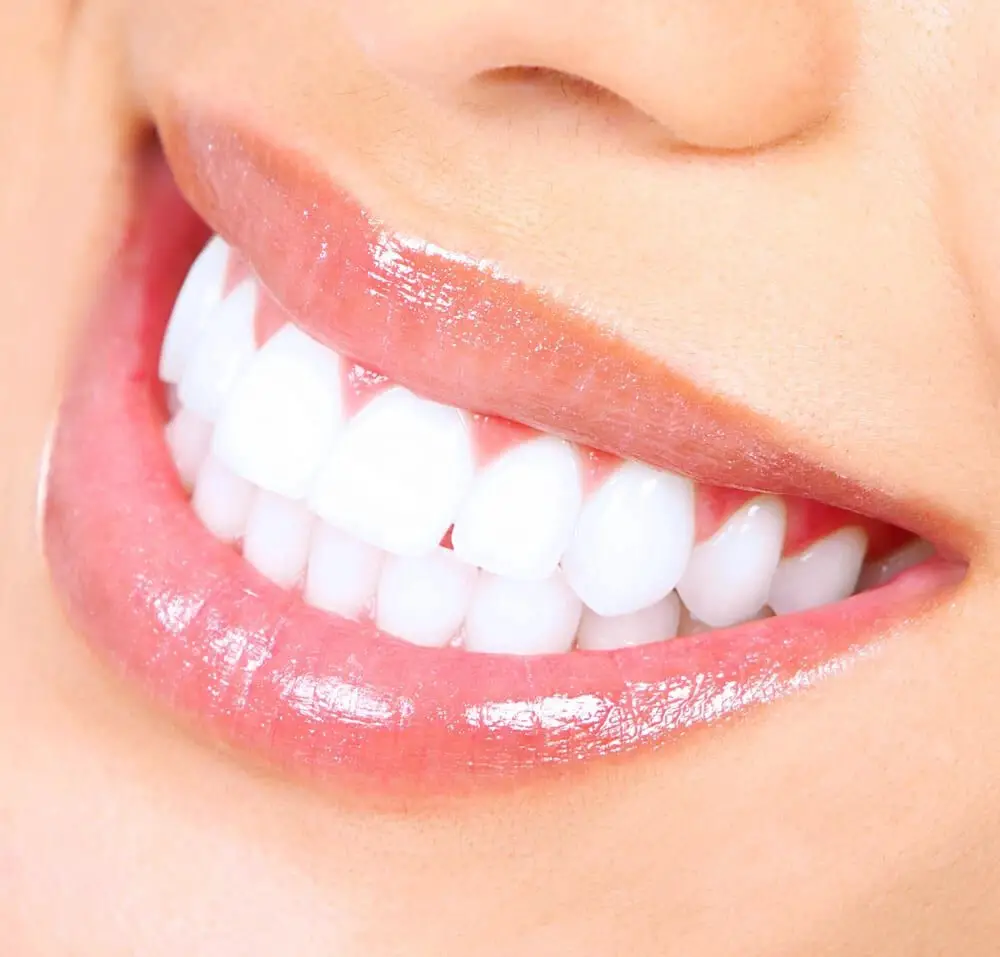
In conclusion, tooth pain caused by drinking water is a common issue that many people face. Dental experts have explained that this pain can be due to various reasons such as tooth decay, sensitive teeth, or a dental infection. It is essential to take care of our dental hygiene by brushing twice a day, flossing regularly, and visiting the dentist for routine checkups. Drinking water is crucial for our overall health, and we should not avoid it due to tooth pain. Instead, it is recommended to consult a dental professional and get the underlying cause treated to enjoy our daily intake of water without any discomfort.


